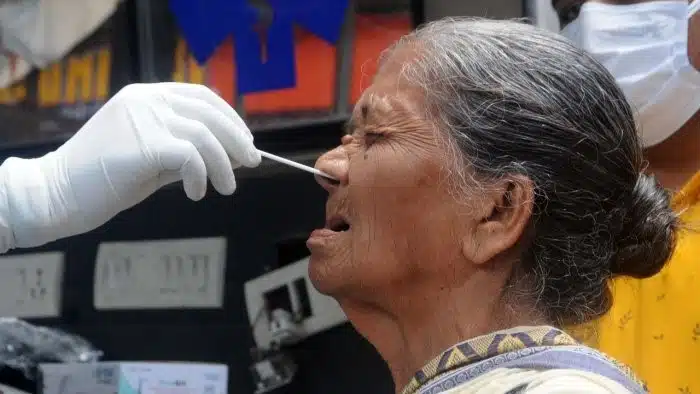Omicron BF.7, the new variant behind the surge of Covid cases in China, have been detected in India causing the government and the states to strengthen their protection against the contagious variant.

Omicron In India –
In the last six months, India has seen four cases of the Omicron BF.7 strain so far. Gujarat (2) and Odisha (1) have both reported cases of the contagious variant. The past three months of July, September, and November found all four BF.7 cases. In India, there are no active BF.7 cases. Each of the four individuals was symptomatic or only experienced minor symptoms. This was confirmed by the health officials of both States.
According to representatives of the Gujarat health department, the two affected individuals in Ahmedabad were locals, while the one in Vadodara was an NRI from the US. No close family members or friends of the first two patients experienced any signs of a cough or moderate fever. The three close friends of the third patient did not exhibit any symptoms, the officials stated. The 57-year-old woman from Odisha was confirmed with B.7 continued to be asymptomatic.

The new coronavirus sub-strain has not yet infected the large number of people unlike in China, but the Center has warned all states and union territories to exercise caution. However, according to the ANI news agency, there are already 10 different Covid-19 types in the nation, with BF.7 being the most recent.
What is BF.7?
BF.7 is a sub-lineage of the Omicron variant BA.5 has the strongest ability to infect people since it is highly transmissible, has a short incubation time, and has a stronger capability to infect and infect even those who have had vaccinations, according to news agency PTI.

The BF.7 variation has 4.4-fold higher neutralization resistance than the original Wuhan virus, according to a study that was published in the Journal Cell Host and Microbe. This means the antibodies from the vaccination are not effective enough against the virus.
The new variant shows symptoms, such as fever, sore throat, runny nose, and cough, that are comparable to those of an upper respiratory infection.
INDIA’S Preparation –
- Following a review meeting on Wednesday, India’s health minister Mansukh Mandaviya tweeted, “Covid is not over yet. I have directed all concerned to be alert and strengthen surveillance. We are prepared to manage any situation.”
- Adar Poonawalla of the vaccine manufacturer Serum Institute of India SII restated the government’s advice that there is no need to panic even though it advises people to wear masks in crowded places.
- In order to determine the variant or subvariant, the government has also requested that States send samples to labs for genome sequencing.
- Additionally, the government has requested that States send samples to labs for genome sequencing, which can be used to find variants or subvariants.
- To be safe against Covid-19 and protect your friends and family, experts advise keeping up with vaccines, wearing masks indoors and outdoors, avoiding large festive gatherings, testing yourself, and isolating yourself while you are sick.
- WHO (World Health Organization) “WHO is very concerned over the evolving situation in China”. However, he went on to inform that “since the peak at the end of January 2022, the number of weekly reported COVID-19 deaths has dropped almost 90 per cent”.
“Remember that the Covid curve has still not flattened in the country. The pandemic is still a matter of concern and one needs to be cautious. It is the need of the hour for everyone to get vaccinated and get a booster shot too. Vaccination can reduce the rate of hospitalisation and mortality too,” According to Dr. Aniket Mule, consultant internal medicine, Wockhardt Hospitals, Mira Road, vaccinations can also lower the rate of hospitalisation and mortality.
Read more: China’s Ongoing Struggle with COVID-19: Challenges and Progress, Including the BF.7 Variant













